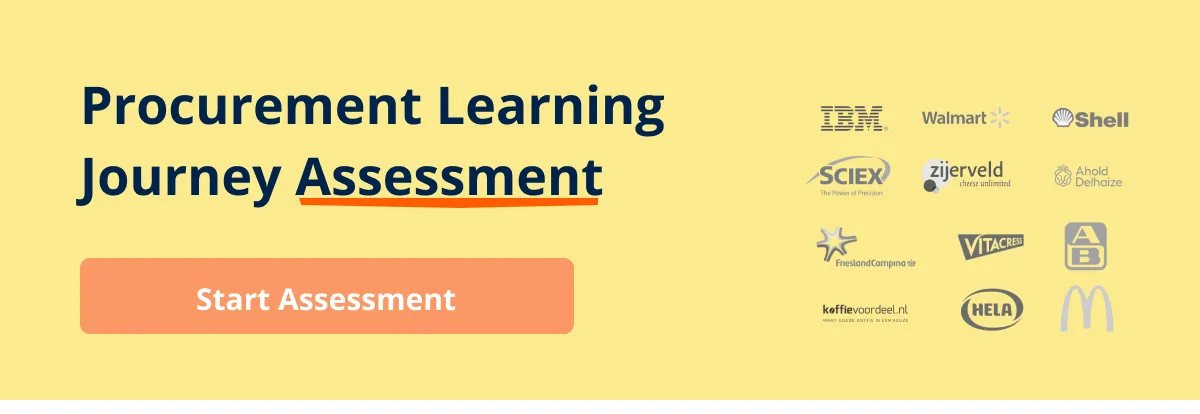ChatGPT & AI in
Procurement Course
Free Preview Lesson

Written by Marijn Overvest | Reviewed by Sjoerd Goedhart | Fact Checked by Ruud Emonds | Our editorial policy
Pillars of Sustainability — Everything About Sustainability
Key take-aways
- Planet, People, Profit – a holistic sustainability approach.
- Accountability, Transparency, Ethical Behavior – foundational sustainability principles.
- Integrating sustainability, continual improvement ensures lasting positive impacts.
The pillars of sustainability should be embedded into an organization’s strategy to achieve sustainability. However, what are these pillars?
In this article, we will discuss what sustainability is. We will discuss the guiding principles of sustainability and the pillars that you need to consider to generate value in your company.
Once you are done reading this article, you will fully grasp what sustainability is and how you can achieve it by being guided by its principles. So without further ado, let us now start!
What is Sustainability
Sustainability is gaining popularity, especially nowadays as many governments and consumers are demanding accountability from companies. However, what really is sustainability?
Sustainability refers to the ability to maintain and support a process continuously over time. In businesses, sustainability aims to prevent the depletion of finite resources so that they will remain available for the next generations to come.
According to the United Nations, sustainability is about meeting the needs of the present without compromising the ability of future generations to meet their needs. This is the reason why many businesses and governments are committing to achieving sustainability.
In procurement, sustainability is the process of implementing approaches that can lessen the negative impacts of your business’s operation on the environment and society.
Significance of Sustainability
Sustainability emphasizes the future effect of business practices on the environment, humans, and the wider economy. Without any changes in how the planet is run, then it will suffer irreparable damage that all of us will incur.
As many governments and people around the world are being aware of how their purchasing behavior can affect the planet, many have demanded companies of every size embrace sustainability within their operations.
The Three Pillars of Sustainability
As many companies are shifting to sustainability, it is important for them to understand and adopt Environmental, Social, and Governmental (ESG) goals. An ESG strategy can help a company to reduce risks such as adapting manufacturing processes to meet future environmental legislation which can benefit in the long run.
Although we call it ESG, we used the three P’s of sustainable procurement for you to understand the 3 pillars better.

1. Planet Pillar
The role of businesses to protect our planet cannot be understated. Just like everyone else, companies should value the planet, especially those companies that have higher carbon emissions.
The following are some examples of the planet pillar in sustainability:
- Urban planning
- Reduction of carbon emissions
- Pollution and waste management
- Water and marine resources management
- Renewable energy resources
- Environmental resource management
Companies should manage their own use of resources and disposal of waste to protect the environment as future generations will inherit it.
2. People Pillar
The people pillar of sustainability covers all the issues that are associated with the personnel management functions of a company. When we talk about this pillar, it focuses on three dimensions which are the Corporate, Character, and Community dimensions.
The need to make an effective team is a requisite of a solid pillar. Maximizing the contribution of each employee of a company can be achieved through a rigorous HR policy. However, you must take note that this pillar will only be effective when it embraces the community in its sustainable vision.
Thus, this pillar ensures that the company will help the local communities that surround it. The following are some examples of people pillars:
- Food security
- Accessibility to clean water
- Human rights
- Labor laws
- Health and Safety
- Gender equality
- Universal access to education
3. Profit Pillar
The profit pillar is obviously present when it comes to companies as it is built to gain profits. Just like the people pillar, it is broken into three dimensions which are Sales, Services, and Strategy.
For you to generate a sustainable profit, it is crucial for a company to have an effective sales stream, a service that generates genuine value for its customers, and a strategy to ensure the highest possible return.
The following are some examples of profit pillars:
- Sustainable economic development
- Value for money
- Economic regeneration
- Emerging markets
- The total cost of ownership
The Guiding Principles of Sustainability
Now that you know the three pillars of sustainability, it is time for you to learn the guiding principles of sustainability that can help every decision of your company regarding sustainability.
1. Accountability
Businesses should be accountable for their impacts on the environment, society, and economy in every aspect of their operation.
2. Transparency
In every decision and activity that impacts the environment, society, and economy, there should be transparency when it comes to sustainability goals and objectives. Transparency is the basis for stakeholders to collaborate to achieve sustainability.
3. Ethical behavior
From sourcing, creation, and delivery of the product, to how employees are treated in the company, Ethical behavior must be observed.
4. Full and fair opportunity
In the context of procurement, this ensures that all suppliers of the company are treated equally and all have the same opportunity to work with the company.
5. Respect for stakeholders’ interests
A business should respect, respond, and consider the interests of its stakeholders impacted by its procurement activities and business decisions.
6. Respect for the rule of law and international norms of behavior
An organization should be aware of any violations that happen in its supply chain and business operations. It should actively encourage all stakeholders to abide by the rules that the company set.
By encouraging them to abide by your rules, you do not have to worry about non-compliance anymore.
7. Respect for internationally recognized human rights
Just like in equal opportunity, the organization must treat all their employees fairly by abiding by internationally recognized human rights laws.
8. Innovative solutions
Innovative solutions are necessary for companies to address their sustainability objectives and encourage innovative procurement practices to promote more sustainable outcomes throughout the supply chain.
9. Focus on needs
An organization must only be focused on what it needs. Thus, it must only acquire what they need to keep its operations running and seek more sustainable alternatives.
10. Integration of sustainability
Sustainability best practices must be integrated into your business operations to maximize sustainable outcomes.
11. Analysis of all cost
A company must consider all the spending over a certain lifecycle, the value for money achieved, and the costs and benefits for the environment, society, and economy resulting from its business operations.
12. Continual improvement
Businesses must ensure that there will be a continuous improvement in their sustainable practice and encourage other organizations in their supply chains to do the same.
Conclusion
Incorporating the pillars of sustainability—Planet, People, and Profit—with guiding principles like accountability and continual improvement is vital. It ensures responsible corporate practices, addressing environmental, social, and economic considerations for a sustainable future.
Frequentlyasked questions
What is Sustainability?
It refers to the ability to maintain and support a process continuously over time.
What is sustainability in procurement?
It is the process of implementing the approaches that can lessen the negative impacts of your business’s operation on the environment and society.
Why is it important nowadays
It is important as it emphasizes the future effect of business practices on the environment, humans, and the wider economy.
Be a Sustainable Procurement Expert!
Do you want to achieve sustainability in your procurement? If yes, then our Sustainable Procurement Course is just right for you! Our course will teach you everything that you need to have a robust and efficient sustainable procurement. Enroll now!
About the author
My name is Marijn Overvest, I’m the founder of Procurement Tactics. I have a deep passion for procurement, and I’ve upskilled over 200 procurement teams from all over the world. When I’m not working, I love running and cycling.


